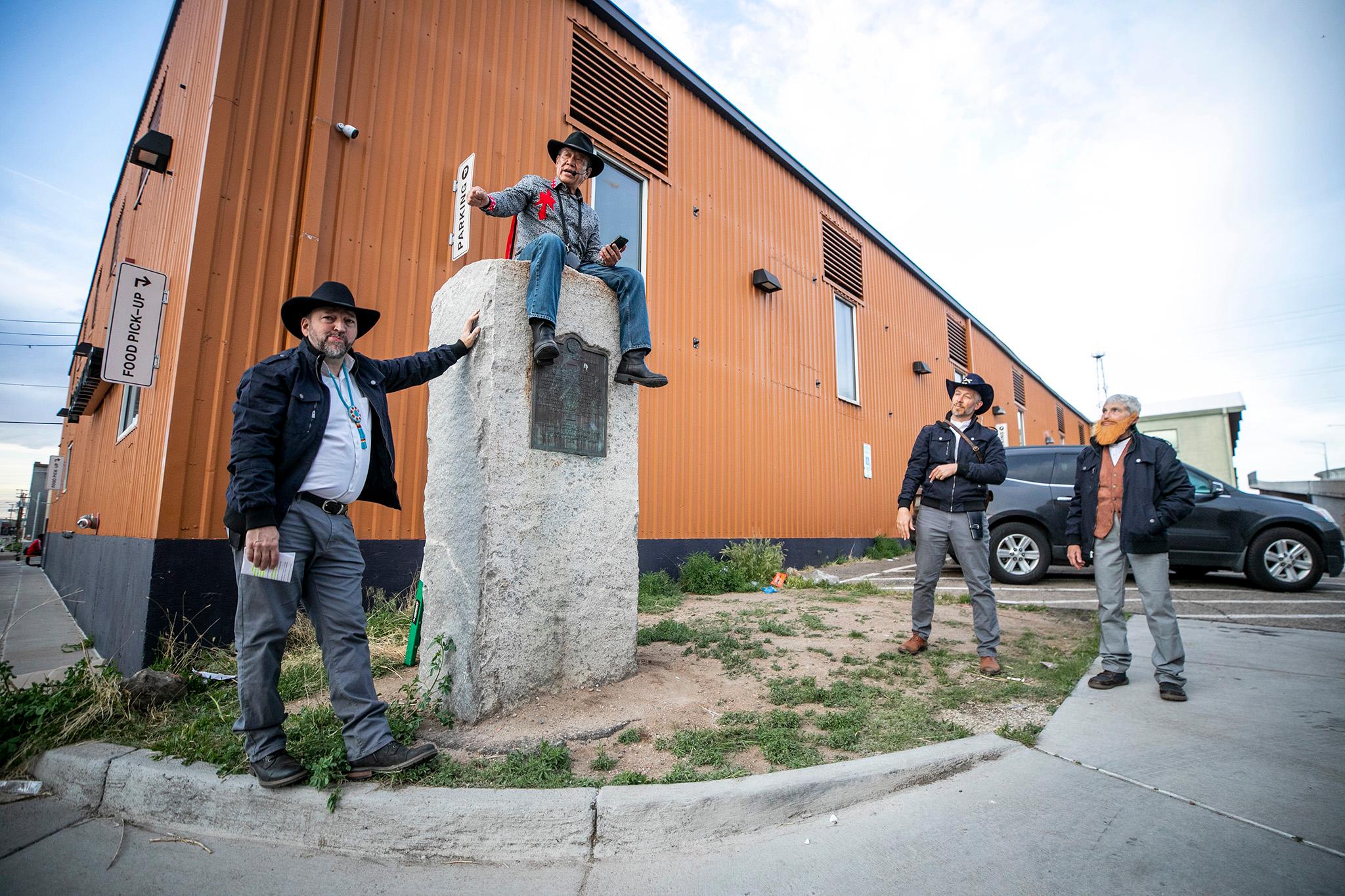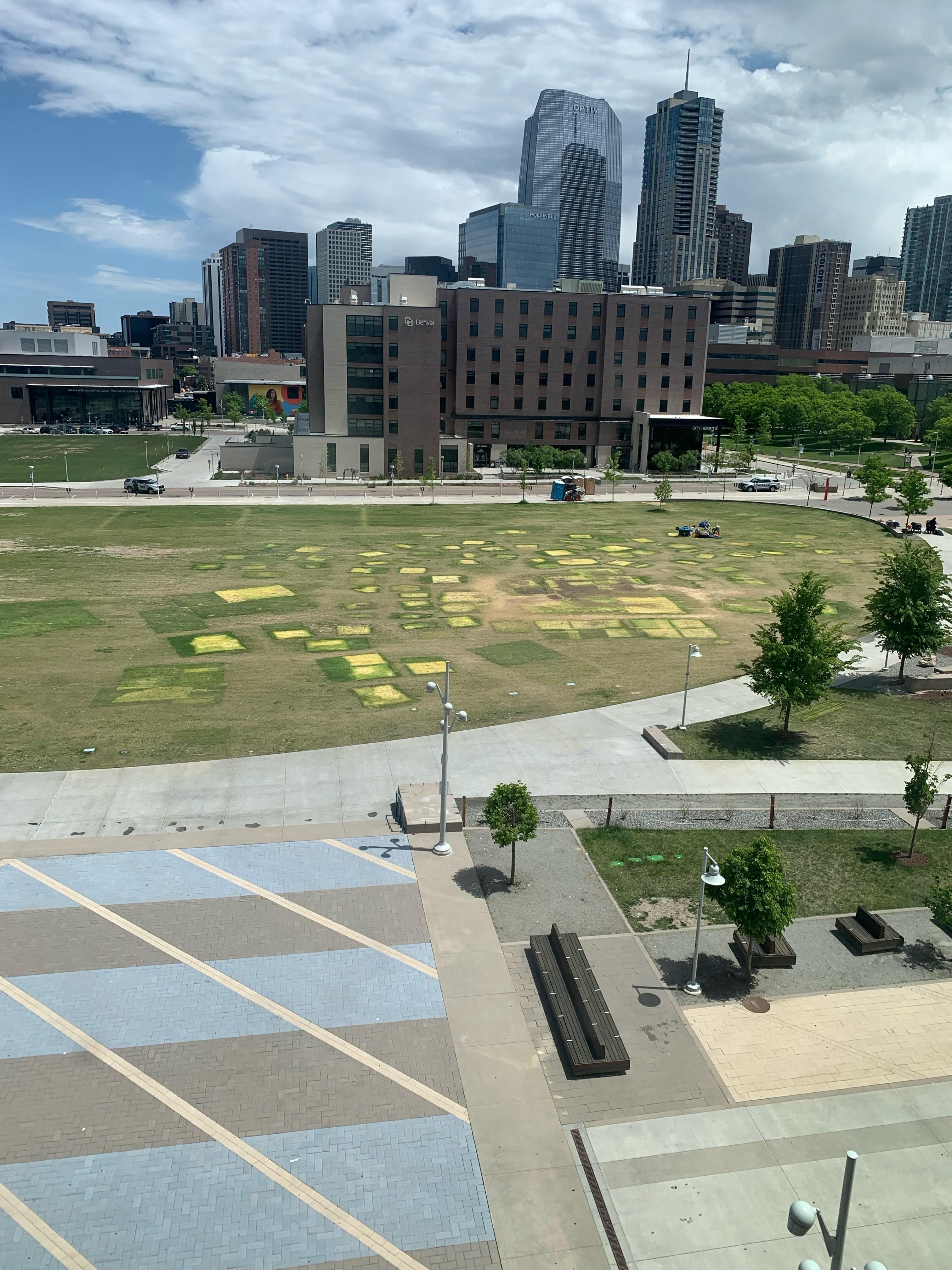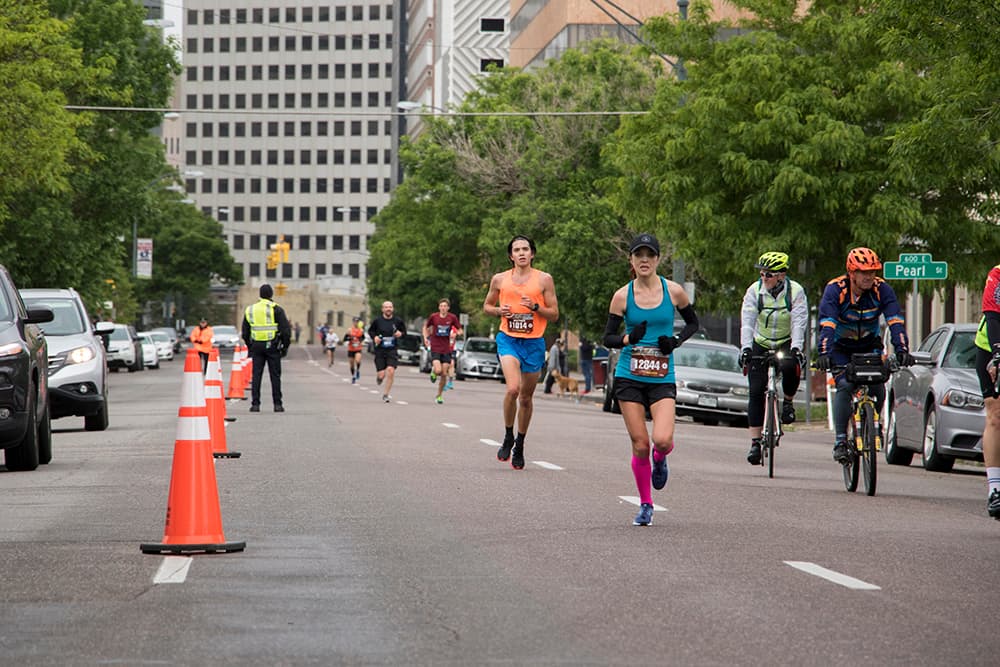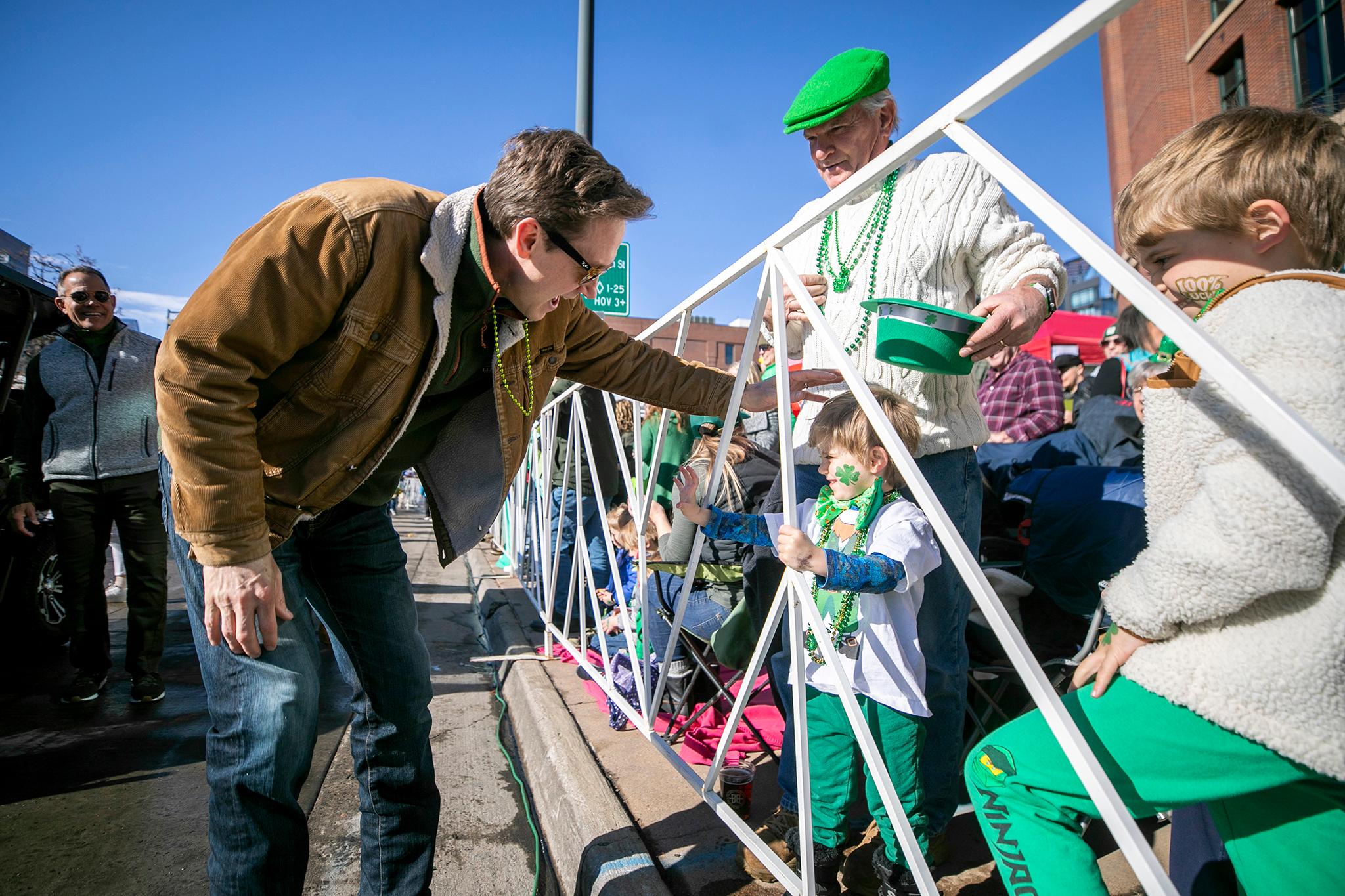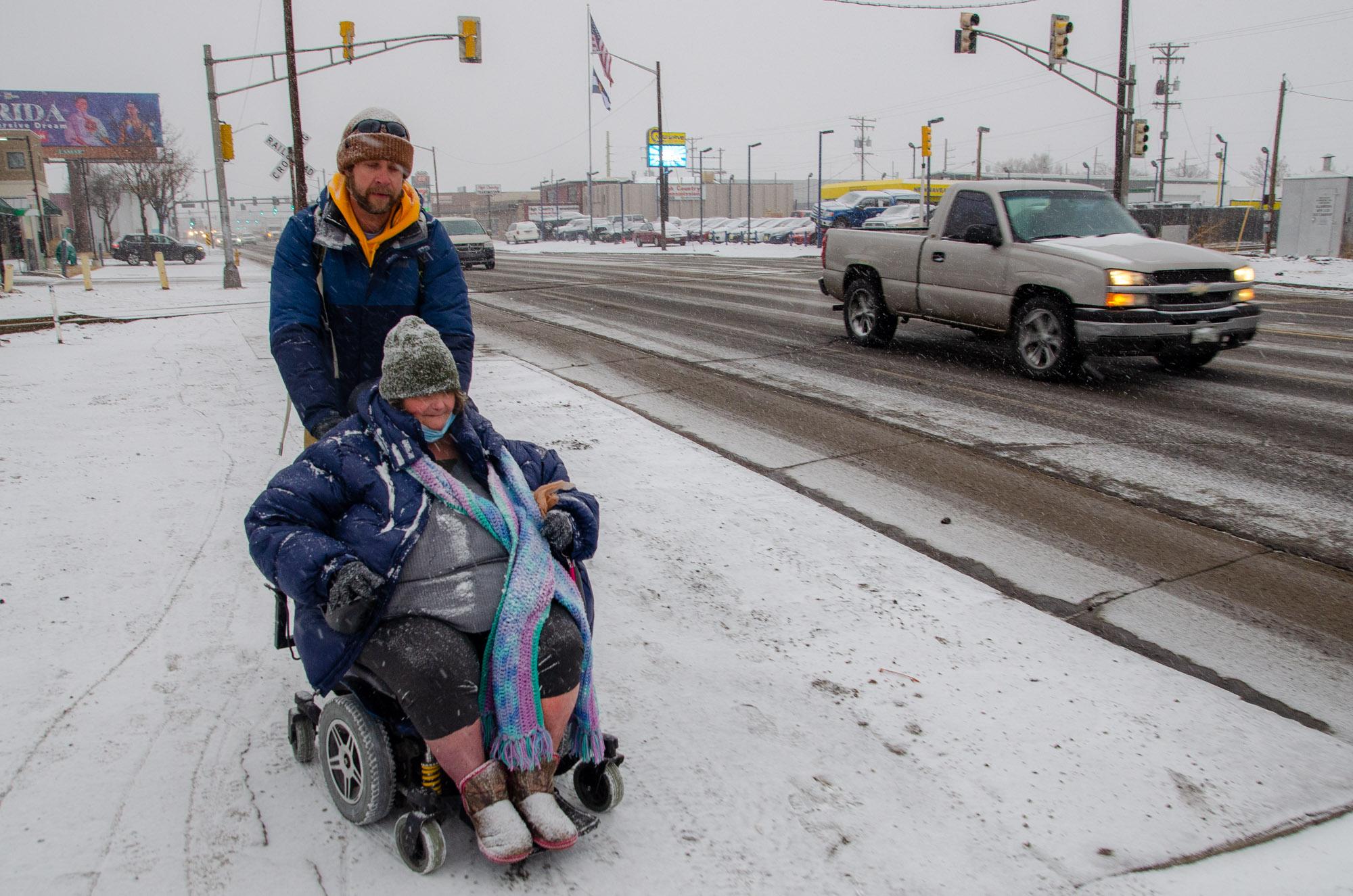There's a stone historic marker tucked behind a concrete wall at the west end of the 8th Avenue bridge. You would never notice it if you didn't know where to look.
"Camp Weld. Established September 1861 for Colorado Civil War Volunteers," it reads. "Headquarters against Indians."
You won't get much more from the inscription, but there's deeper history in this odd place.
On September 28th, 1864, Col. John Chivington met here with Chiefs Black Kettle and One Eye, and other Cheyenne and Arapaho leaders, to extract information that the army would use to commit the Sand Creek Massacre.
A new performance by Control Group Productions relives that moment and others surrounding the mass killing in dark, often funny vignettes played out across the city. "Breathing Healing Into The Banks Of Sand Creek" begins by lining up audiences as if they were soldiers; Chivington, played by Control Group founder Patrick Mueller, barks orders at them as he sets the scene. Then, he marches them onto a bus that moves them from historic location to historic location.
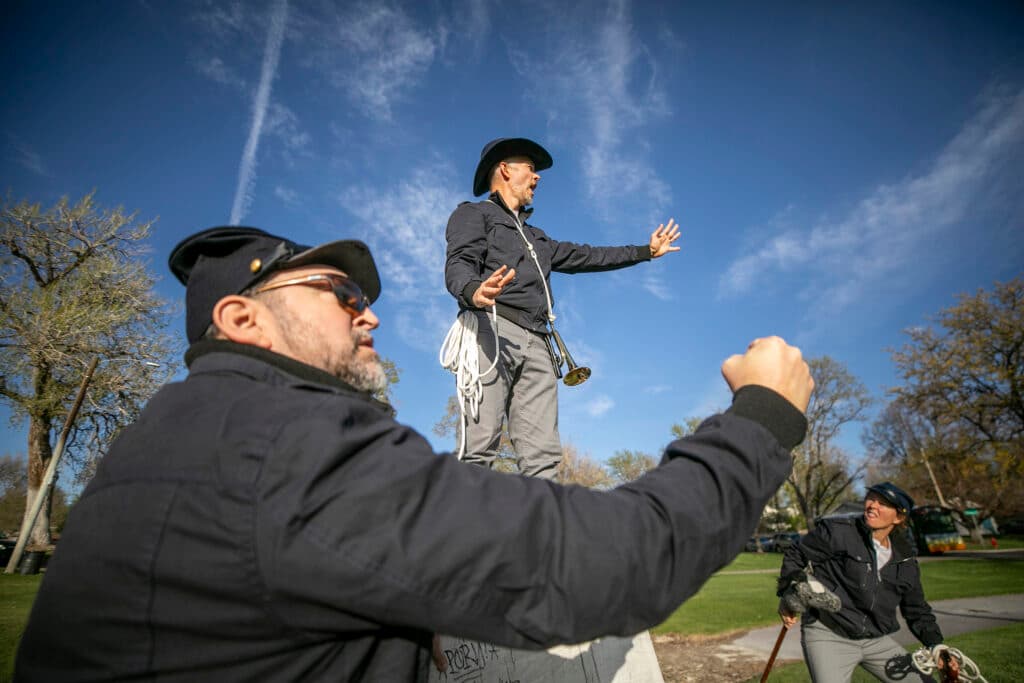
Each stop injects viewers into Chivington's brigade, making them participants in his brutal campaign.
The show is intense, said co-creator Cinnamon Kills First, and that's the point. It's also why this is really meant for one audience: white people.
"The show is specifically designed to create liberatory, white reckonings," she told us. "We want to face this history. We're inviting people to feel it in their body. We want them to reckon with their place [in it] — and ongoing colonization."
Like the stone marker, this history is still with us today, even if it's been obscured by almost 200 years of growth around it. Kills First said survivors of Sand Creek, like her family, have found their own ways to deal with generational trauma stemming from that act of genocide. This play aims to do the same for people who came after the perpetrators and benefitted from their violence.
"This didn't just happen in the past. These issues are still ongoing in the present," she told us. "How can we look at the sickness of white supremacy and work to break it down, and be allowed a healthier future for not just Cheyenne and Arapahoe people, but for the world?"
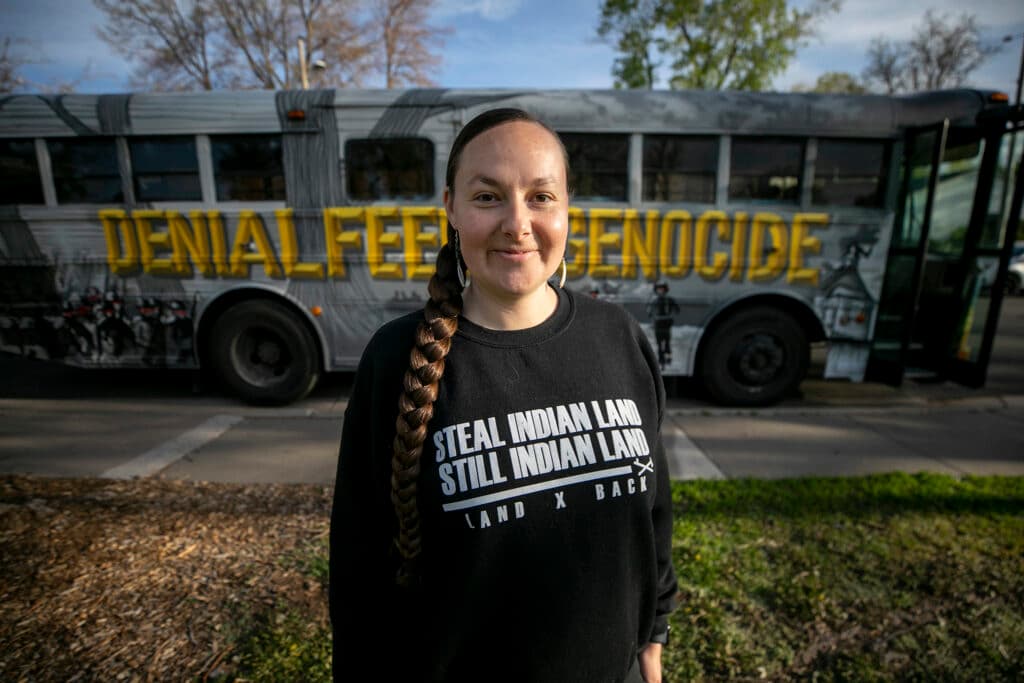
Kills First and Mueller added that non-white viewers are invited to join their experience, but should consider whether they're ready to plunge themselves into an intimate look at racial violence.
"People of color don't need to be in the space to support white people through those reckonings," Kills First said.
The bus stops at three Denver spots related to the massacre.
The first stope is Confluence Park where Mueller — in character as Chivington — leads a posse of pioneers reenacting Denver's founding. Above him, Bill Tall Bull, who helps run the city's annual bison return program, narrates the scene.
"White people created railroads. They formed this city 165 years ago. In turn, that contaminated the water, the land, the air that we breathe. And this harm is ongoing. We're in a concrete jungle here. It's cold. The sun doesn't shine ... there's no clean water. We can't pray here," he says to the crowd. "Did the white immigrants ever think that one day they would have to answer for all the destruction that they did?"
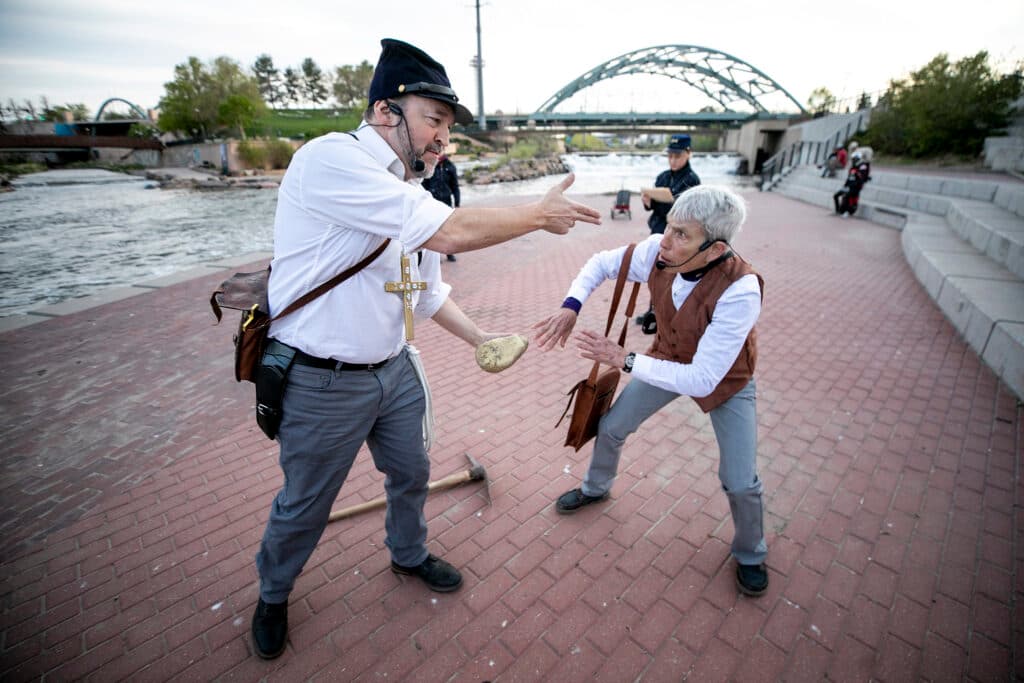
Second is the Fort Weld marker, where Tall Bull, Mueller and their castmates play out the fateful summit there.
"Chief Black Kettle and my relative Chief One Eye were the most recognized leaders of the Cheyenne people," Tall Bull says at this stop. "They advocated for peace with the white people. They were the leading voice for peace when others knew that white people could not be trusted."
Colorado Gov. John Evans, whose name was recently removed from a 14er for his role in the massacre, is part of this scene.

Next, audiences return to the bus and listen to a guided meditation that puts them in the shoes of soldiers as they carry out the massacre. When the horrific scene ends, they're ushered into Larimer Square to march triumphantly into town, like the perpetrators did after they completed their mission.
"You returned to Denver and are greeted by cheering crowds. Your wives, sons, and daughters celebrate your victory and welcome you home," a voice says through speakers embedded beneath the seats.
"The land you live on and the luxuries you enjoy have come at the expense of these lives," Kills First's voice adds, stoking what she said is an intentional oscillation between "resonance and dissonance."
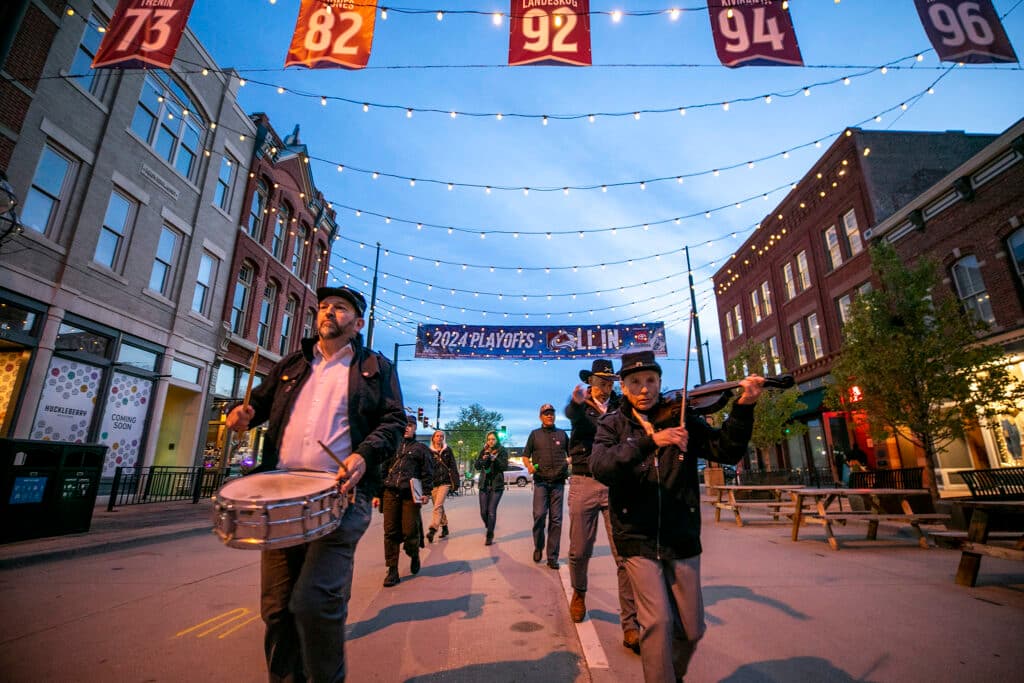
As viewers march down Larimer Street, they're led to Skyline Park, where Silas Soule was assassinated. The newly married soldier was present at the massacre; his letters documenting the army's brutality are some of the few ways we know what happened there, and he paid for telling the truth.
"The clergy who gave Silas's actual eulogy did not mention Sand Creek. Instead, they called him a good soldier," actor David Ortolano says as the evening comes to a close. "We don't celebrate heroes. We kill them."
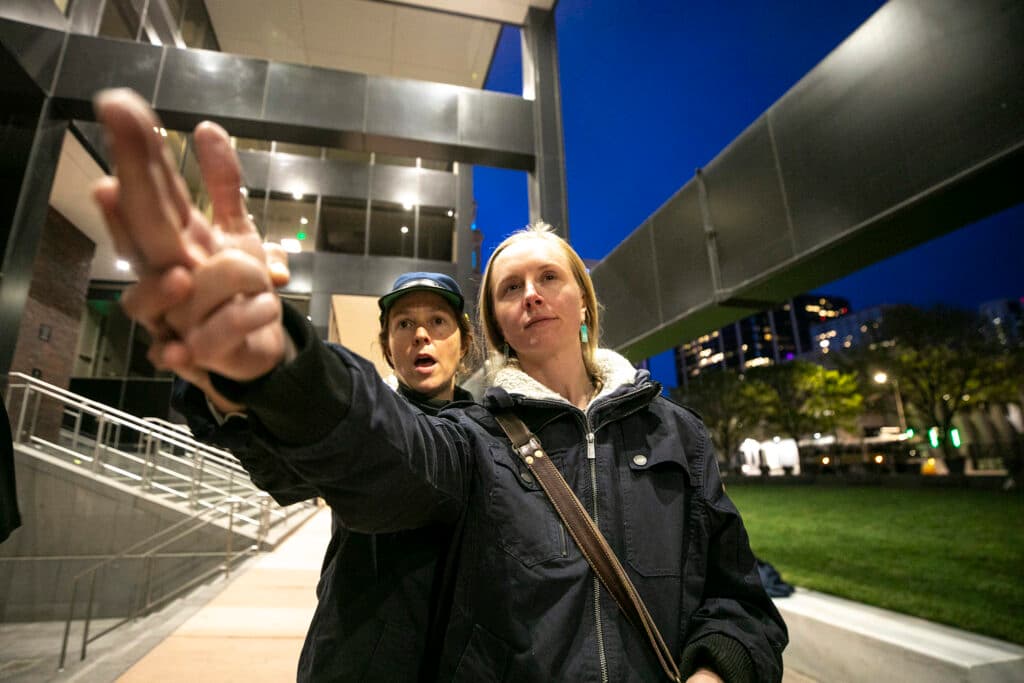
The history is hard, but the playwrights will guide you through with grace.
"Breathing Healing Into The Banks Of Sand Creek" is a mix of theater and meditation. Kills First has a background working in somatics, a type of therapy that focuses on one's body for guidance, and infused that practice into the performance.
As audiences travel between reenactments at the bus' three stops, a recording of her voice invites them to look inward and take stock of what this history is doing to them. She asks them to notice new stress coursing through them, and works to move past their defenses.
"My ancestors were not in the military. My family arrived here later. I get along with everyone," Kills First says in one guided meditation, getting ahead of knee-jerk reactions that viewers might hold in their minds to distance themselves from the tragedy. "These bypasses prevent the body from feeling the suffering of Indigenous people."
"We are not our ancestors, but we inherit their trauma. It is our job in the present to heal," she adds. "Our descendants deserve a healthier world."
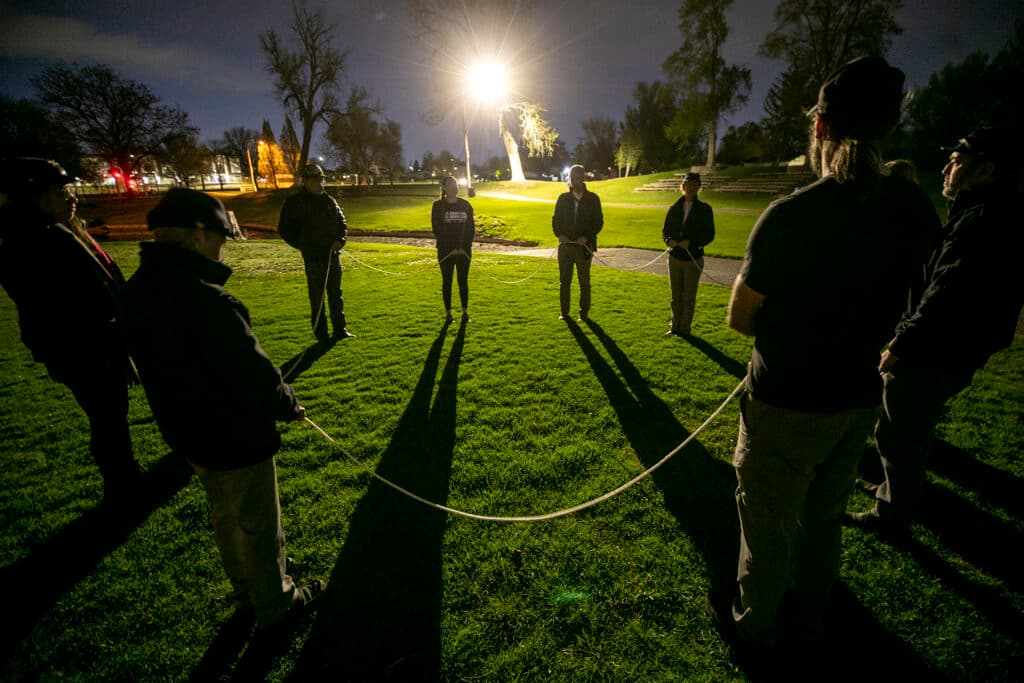
While Kills First said it's not her job as an Indigenous person to guide white people to healing, she does feel a responsibility to avail her expertise as a somatic therapist. Grace is part of that practice, and that's obvious on this bus-ride odyssey. Viewers are pulled into a very dark past, but it's never too much; her voice lifts the experience along the way, assuring the audience that they can deal with their own generational trauma and guilt, then help build a better present and future.
"I have a saying: shame don't teach. And I think what we need is for our fellow white relatives to understand that the perpetration is ongoing. And I don't think we can bring them to that level of understanding if we confront it too harshly," she said, holding her infant son. "The destruction of our land, violation of treaties is happening, but that won't stop until white bodies heal. When they heal, then Indigenous communities, like my son here, he'll live in a healthier, brighter future."
"Breathing Healing Into The Banks Of Sand Creek" runs through May 19th; starting locations differ depending on which date you attend.

